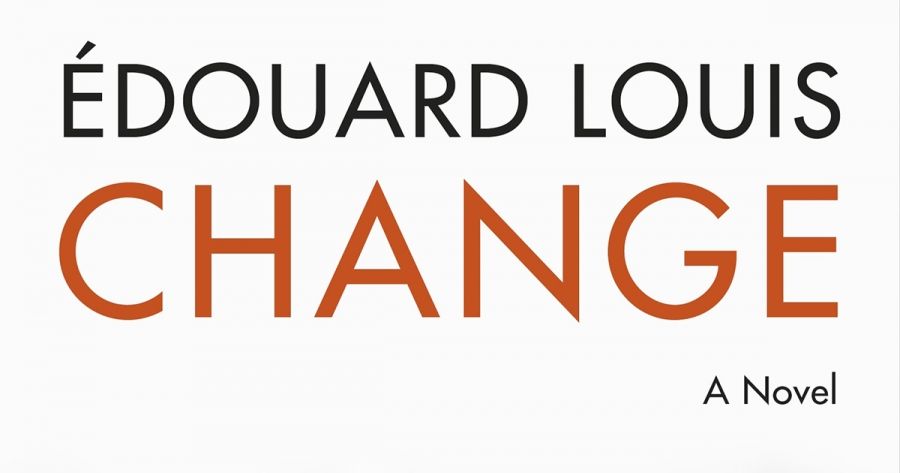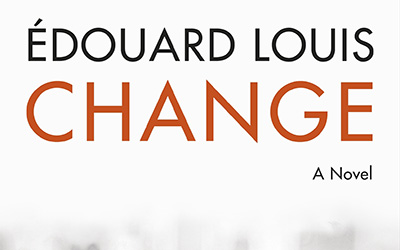
- Free Article: No
- Contents Category: Fiction
- Review Article: Yes
- Article Title: Conditions of escape
- Article Subtitle: Avenging the humiliations of childhood
- Online Only: No
- Custom Highlight Text:
Autofiction differs from autobiography in that, to use Jean Genet’s formula with which Édouard Louis opens his latest novel, Change: A novel, the self is nothing but a ‘pretext’. In Louis’ case, it is a pretext for exploring the self as a sociological, rather than psychological, phenomenon; the enduring product of the social class in which it was forged. Change (first published in 2021 as Changer: méthode) opens with the narrator, Édouard (né Eddy), sitting at his desk writing what will become the novel we are now reading. His objective: ‘to fix the past in writing and, I suppose, to get rid of it’. This will prove easier said than done. As Édouard later discovers, the past has a way of reinstating itself, like a pendulum which is always restored to equilibrium. It is, however, less this resting place than the oscillations that Louis is interested in recording.
- Featured Image (400px * 250px):

- Alt Tag (Featured Image): David Jack reviews ‘Change: A novel’ by Édouard Louis translated by John Lambert
- Book 1 Title: Change
- Book 1 Subtitle: A novel
- Book 1 Biblio: Harvill Secker, $42.99 hb, 288 pp
- Book 1 Cover Small (400 x 600):

- Book 1 Cover (800 x 1200):

For Édouard, Amiens was a place he could reinvent himself, a place to start over, a place where ‘I had no reputation, no past and therefore no history’. It was where he first ‘got a glimpse of an existence in which I could have a place’.
It was also, however, the place where he confronted for the first time what he calls the ‘concrete’ reality of social class: ‘you have to enter those worlds to feel how real, how omnipresent the difference is, not only in terms of money but in the ways of thinking, walking, breathing, everything.’ In short, Édouard discovers an entire catalogue of what sociologist Pierre Bourdieu called ‘distinctions’; and while he can adopt ‘the social codes of a new social class’, he can never be truly at home.
He quickly assumes the status of ‘outsider’, one which reflects Louis’ position vis-à-vis the Paris literary scene. Édouard is not aspirational in the narrow sense of seeking wealth for wealth’s sake. His ambition was, unashamedly at first, to avenge the humiliations of his childhood, to vanquish the petty and bigoted world view of his father, to whom he addresses a significant portion of the book. Amiens soon becomes too small for Édouard, who sets his sights on Paris and the prestigious École Normale Supérieure, a goal even he must admit is virtually unattainable for someone with his background – virtually, because Édouard absolutely refuses to accept his social destiny: ‘naivety’, he writes, ‘is a condition of escape’.
For all its gesturing towards Louis’ life, including footnotes correcting certain details and photographs of the ‘author’ at various stages of his transformation, Change is a meticulously crafted work of autofiction, with a complex system of cultural cross references, including social theory, literature, film, music (especially requiems), and painting. The ease with which the story unfolds belies Louis’ masterly hand. Édouard calls the book ‘an odyssey’, and it is formally a quest narrative in which the narrator searches for ‘a type of existence in which a body and a story like mine would be possible’. Above all, it is a ‘quest for revenge’, against his upbringing, yes, but also against the class which somewhat patronisingly accepted him as one of its own.
Fame was to be his penultimate revenge, and it soon becomes clear to Édouard that the only way to achieve this was through writing books. For Édouard, books and writing are not ‘primary things’ but merely means to an end. He learned to read books and write them in much the same way as he learned to speak, walk, dress, and eat. There is a ruthlessness about Édouard which is only marginally tempered by the precariousness of his social position and the self-reflexive musings as to his character. Among all the plans, dreams, aspirations, and, at times, betrayals, there remains the lingering question: ‘Was I becoming a bad person? Was I hateful?’ So focused is Édouard on being accepted by this new milieu that he never considers that it might want nothing to do with him, or that he would be ultimately repelled by it. Indeed, it doesn’t take Édouard long to recognise the ‘class violence’ behind the gestures, the classical music, the walls of books, the particular way of speaking or holding a knife and fork, nor to understand just how pervasive class is, how even sexual desire can be transformed by it: ‘There was,’ he writes, ‘no difference between my physical and my social desire.’ Nonetheless, these realisations are not enough for him to moderate his ambition or his methods: ‘Questioning the violence of the world was not a luxury I could afford, the key thing was to keep going.’
And keep going he does. Change is in equal parts about the nebulous and insatiable nature of desire, and the gradual realisation that success is a wholly relative endeavour, the mountain peak of ambition disappearing into the clouds of an unreachable Olympus. Ironically, the vanity of Édouard’s quest is amplified by the sudden nostalgia he feels for his childhood and the regret at having ever distanced himself from his past. Perhaps the moral of the story can be summed up by Pascal’s observation that ‘we never actually live, but hope to live, and since we are always planning how to be happy, it is inevitable that we should never be so.’ Or, as Édouard puts it: ‘It’s the present that I miss.’ But the present is not for Edouard, any more than is the past. Each success quickly fades in the light of a new possibility, a new conquest, a new revenge, and Édouard becomes the absurd Sisyphean hero ‘doomed always to hope for another life’.


Comments powered by CComment